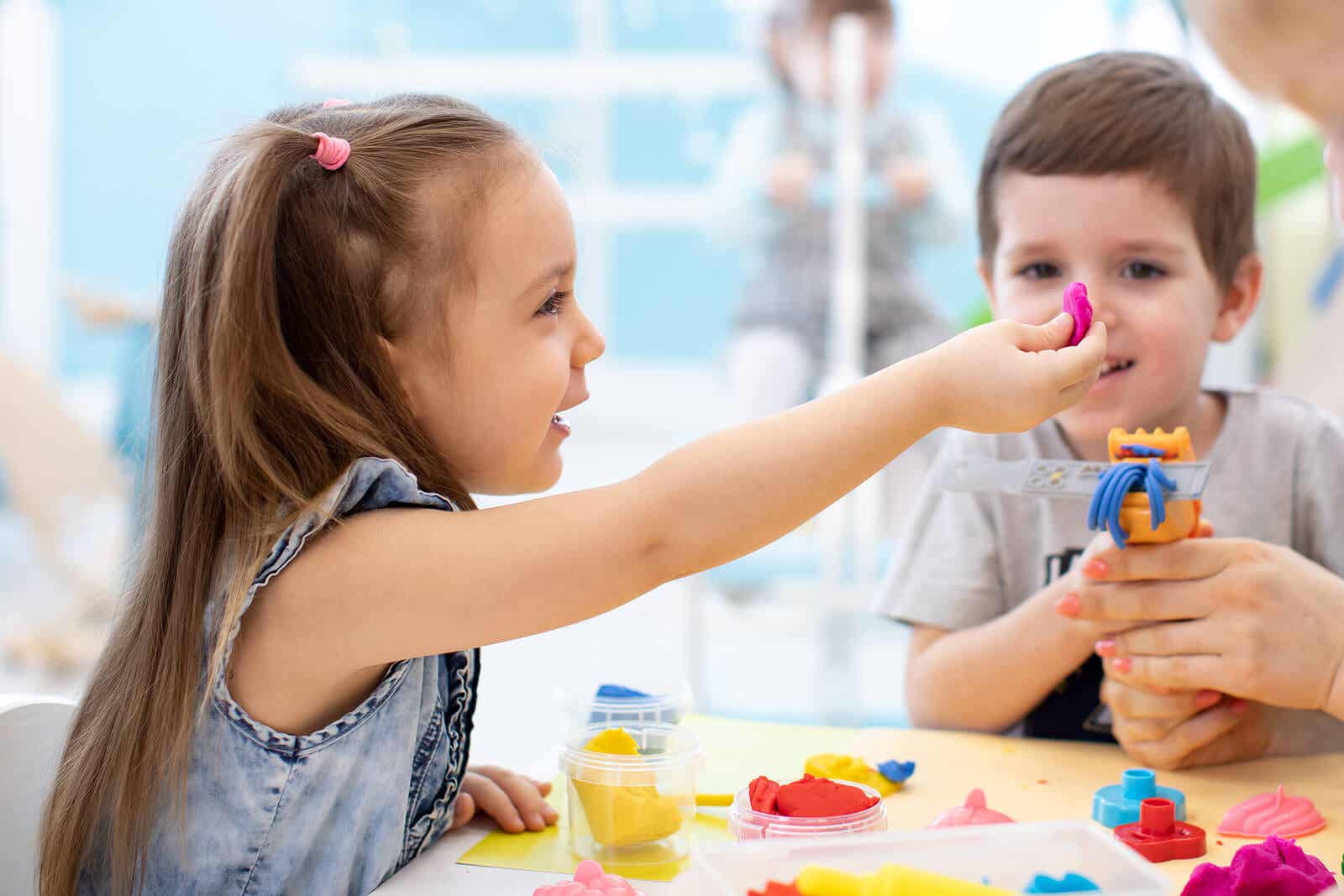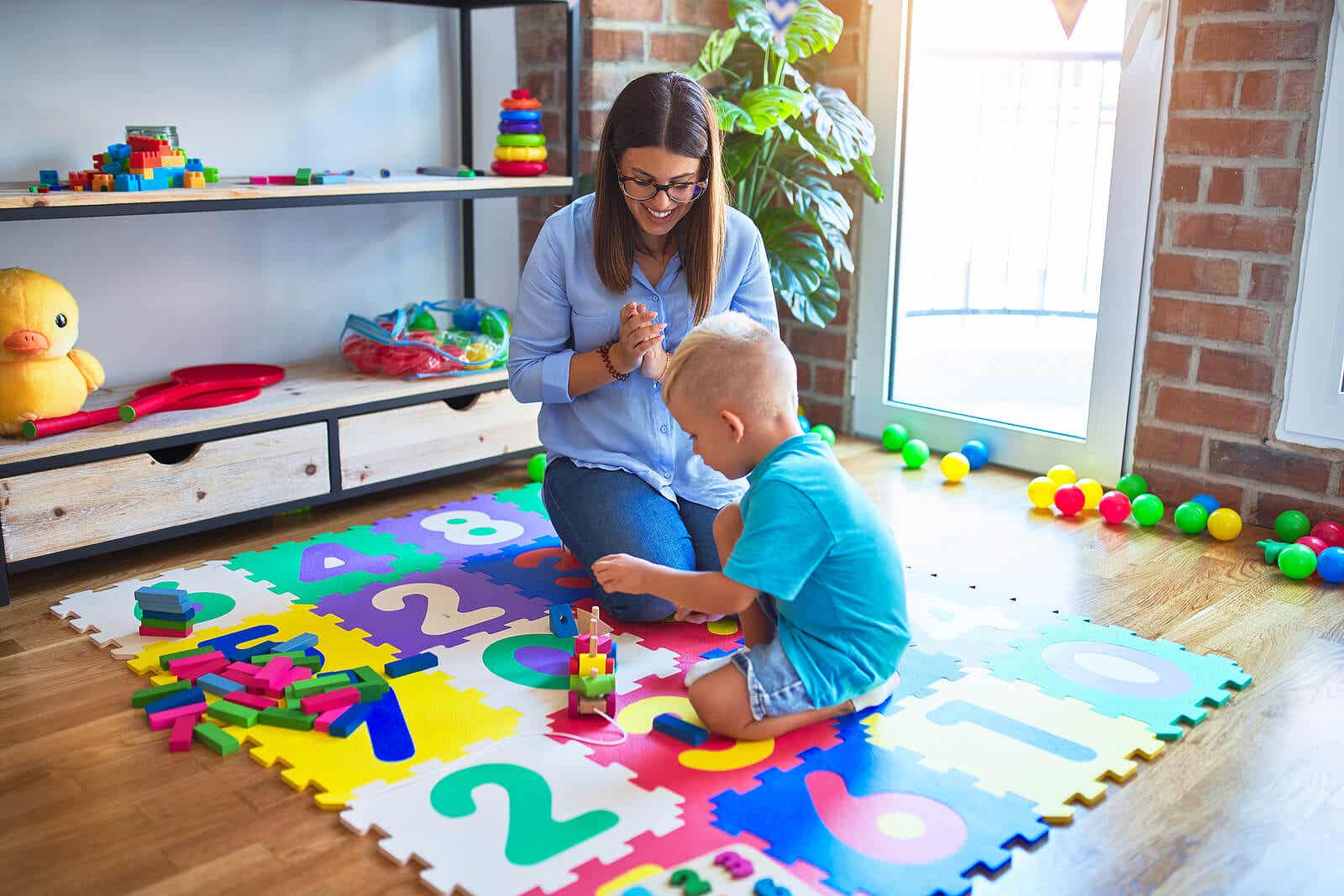Play in Early Childhood: Here's What You Need to Know

Why’s play so important? Why’s it so necessary for children to play every day? Play in early childhood is essential for development, which is why all parents should be up to date on this so that their children can develop properly.
Play in early childhood
Every parent wants their children to succeed; they want them to learn and feel competent during their school years. All parents, in addition, want their children to acquire skills that will serve them well in life, such as:
- Learning to read and write
- Having good math skills
- Good social skills
- Good self-confidence
- Critical thinking
- Be good at conflict resolution
- Develop their own independence
The list could be much longer, but what we can all agree on is that play helps in all of these areas of a child’s development. Therefore, parents must do their part to ensure that this development is optimal.

Play in early childhood
Play is the most natural state for a child and the state in which they learn everything in the first years of life. Lately, there’s been a dramatic increase in the amount of screen time children are exposed to, as well as adult-led after-school activities.
This has resulted in a decrease in the average amount of time children play on a daily basis. So, the cycle looks something like this:
- More screen time + additional adult-guided activities = less playtime
- Less play = more learning difficulties
- More learning difficulties = more additional activities to remedy those difficulties
- Hence, even less play
Furthermore, the irony’s that when children lose valuable playtime, they develop more learning difficulties. And the more they’re forced to engage in additional activities, the less likely they are to develop their skills naturally. It’s not a healthy cycle, but, unfortunately, it’s a reality for many children today.
While little ones are forced to learn to read, write, and count before they’re developmentally ready, they’re losing valuable time when they’re supposed to be learning through play. Without it, reading, writing, and math skills won’t develop properly and fully.
The importance of early childhood play
So what exactly are all these amazing skills that are developed through play in early childhood? Let’s take a look at how these activities help your little one develop holistically. This way, you’ll have a better understanding of how important they are.
Physical development
On the one hand, a child’s physical development depends on stimulating their gross motor and fine motor skills, and this is what happens during play.
Gross motor skills include walking, running, climbing, throwing, rolling, catching, balancing… In addition, they improve posture and the ability to sit and concentrate. Balance, coordination, and many other things will also improve through play.
Children who don’t develop their gross motor skills are less likely to participate in sports during their childhood and adolescence. Gross motor skills should be developed before fine motor skills.
All of these skills help young children to write, to sit… Without developing adequate motor skills, children won’t be able to read and write effectively.
Cognitive Development
Next, here are some cognitive skills that are developed through play in early childhood:
- Play improves memory and stimulates brain growth. Babies who aren’t stimulated don’t follow the same developmental patterns as those who are. Play’s essential in order to continue this growth.
- It provides breaks and helps with attention span. Little ones can focus longer on quiet activities when given the opportunity to play freely. Children working on academic tasks can concentrate better when given breaks to play and move freely.
- During play, children are constantly solving problems creatively. Their critical thinking skills and problem-solving skills are stimulated.
- Pretend or symbolic play teaches children to regulate their emotions and develop their reasoning skills.
- Math skills are developed during play in many ways. A common example is stacking blocks, which builds numerical concepts from a very early age.
- Playing’s full of exploration and experimentation; it promotes good skills for math, science, and technology classes in later grades.
- Both receptive language (what a child hears) and expressive language (what a child says) are continually stimulated while playing, especially during pretend/simulation play. Their auditory skills and ability to decode sounds are developed, which lays the foundation for later reading.

Social development
Children need strong social skills to function on a daily basis. These are developed primarily through children’s relationships with their parents and family members, and by playing with their peers.
During play, children learn to act appropriately in social situations and to read body language. Rules generally exist during play, whether they’re structured rules during a board game or rules made up as you go along in an imitation game.
It’s important that children learn to follow expectations and find a balance between following the rules of others and expressing their own expectations with confidence.
Ultimately, during play, children learn to share, consider others, take turns, be fair, and guide play so that everyone involved has a positive experience. When conflicts arise, they’re a good opportunity to learn how to resolve them effectively as well as independently.
Why’s play so important? Why’s it so necessary for children to play every day? Play in early childhood is essential for development, which is why all parents should be up to date on this so that their children can develop properly.
Play in early childhood
Every parent wants their children to succeed; they want them to learn and feel competent during their school years. All parents, in addition, want their children to acquire skills that will serve them well in life, such as:
- Learning to read and write
- Having good math skills
- Good social skills
- Good self-confidence
- Critical thinking
- Be good at conflict resolution
- Develop their own independence
The list could be much longer, but what we can all agree on is that play helps in all of these areas of a child’s development. Therefore, parents must do their part to ensure that this development is optimal.

Play in early childhood
Play is the most natural state for a child and the state in which they learn everything in the first years of life. Lately, there’s been a dramatic increase in the amount of screen time children are exposed to, as well as adult-led after-school activities.
This has resulted in a decrease in the average amount of time children play on a daily basis. So, the cycle looks something like this:
- More screen time + additional adult-guided activities = less playtime
- Less play = more learning difficulties
- More learning difficulties = more additional activities to remedy those difficulties
- Hence, even less play
Furthermore, the irony’s that when children lose valuable playtime, they develop more learning difficulties. And the more they’re forced to engage in additional activities, the less likely they are to develop their skills naturally. It’s not a healthy cycle, but, unfortunately, it’s a reality for many children today.
While little ones are forced to learn to read, write, and count before they’re developmentally ready, they’re losing valuable time when they’re supposed to be learning through play. Without it, reading, writing, and math skills won’t develop properly and fully.
The importance of early childhood play
So what exactly are all these amazing skills that are developed through play in early childhood? Let’s take a look at how these activities help your little one develop holistically. This way, you’ll have a better understanding of how important they are.
Physical development
On the one hand, a child’s physical development depends on stimulating their gross motor and fine motor skills, and this is what happens during play.
Gross motor skills include walking, running, climbing, throwing, rolling, catching, balancing… In addition, they improve posture and the ability to sit and concentrate. Balance, coordination, and many other things will also improve through play.
Children who don’t develop their gross motor skills are less likely to participate in sports during their childhood and adolescence. Gross motor skills should be developed before fine motor skills.
All of these skills help young children to write, to sit… Without developing adequate motor skills, children won’t be able to read and write effectively.
Cognitive Development
Next, here are some cognitive skills that are developed through play in early childhood:
- Play improves memory and stimulates brain growth. Babies who aren’t stimulated don’t follow the same developmental patterns as those who are. Play’s essential in order to continue this growth.
- It provides breaks and helps with attention span. Little ones can focus longer on quiet activities when given the opportunity to play freely. Children working on academic tasks can concentrate better when given breaks to play and move freely.
- During play, children are constantly solving problems creatively. Their critical thinking skills and problem-solving skills are stimulated.
- Pretend or symbolic play teaches children to regulate their emotions and develop their reasoning skills.
- Math skills are developed during play in many ways. A common example is stacking blocks, which builds numerical concepts from a very early age.
- Playing’s full of exploration and experimentation; it promotes good skills for math, science, and technology classes in later grades.
- Both receptive language (what a child hears) and expressive language (what a child says) are continually stimulated while playing, especially during pretend/simulation play. Their auditory skills and ability to decode sounds are developed, which lays the foundation for later reading.

Social development
Children need strong social skills to function on a daily basis. These are developed primarily through children’s relationships with their parents and family members, and by playing with their peers.
During play, children learn to act appropriately in social situations and to read body language. Rules generally exist during play, whether they’re structured rules during a board game or rules made up as you go along in an imitation game.
It’s important that children learn to follow expectations and find a balance between following the rules of others and expressing their own expectations with confidence.
Ultimately, during play, children learn to share, consider others, take turns, be fair, and guide play so that everyone involved has a positive experience. When conflicts arise, they’re a good opportunity to learn how to resolve them effectively as well as independently.
All cited sources were thoroughly reviewed by our team to ensure their quality, reliability, currency, and validity. The bibliography of this article was considered reliable and of academic or scientific accuracy.
- Gómez V Romero, M,. (2016) El juego infantil y su metodología. Editorial: Altamar
This text is provided for informational purposes only and does not replace consultation with a professional. If in doubt, consult your specialist.








